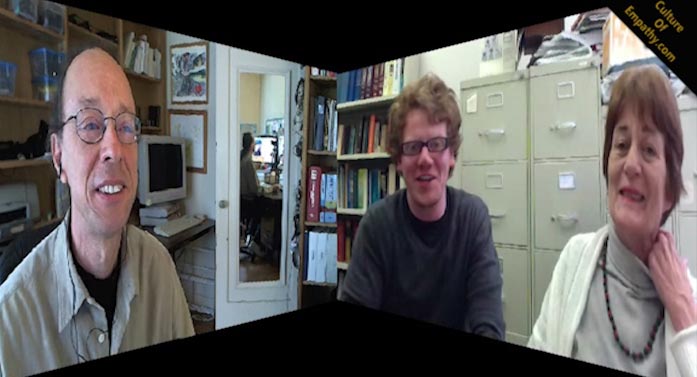|
|
|
Culture of Empathy Builder:
Ed OBrien
Empathy Study: Why Republicans and
Democrats can't empathize with each other?
Ed O’Brien -
Graduate Student in Social Psychology,
University of Michigan
Empathy Study: We feel more empathy for those with similar
political beliefs
What people feel shapes their perceptions of others. In the studies reported here, we examined the assimilative influence of visceral states on social judgment. Replicating prior research, we found that participants who were outside during winter overestimated the extent to which other people were bothered by cold (Study 1), and participants who ate salty snacks without water thought other people were overly bothered by thirst (Study 2).
However, in both studies, this effect evaporated when participants believed that the other people under consideration held opposing political views from their own. Participants who judged these dissimilar others were unaffected by their own strong visceral-drive states, a finding that highlights the power of dissimilarity in social judgment. Dissimilarity may thus represent a boundary condition for embodied cognition and inhibit an empathic understanding of shared out-group pain. Our findings reveal the need for a better understanding of how people’s internal experiences influence their perceptions of the feelings and experiences of those who may hold different values from their own.
2012-04-04 - Why Republicans and Democrats Can't Feel Each Other's Pain
By MAIA SZALAVITZ
2012-04-04 - Politics vs. Empathy
Politics makes us stupid. This is one of my recurring
themes. This is the principal reason I refuse to be partisan or
ideological team player. People call me libertarian but I don't in part
because I'm not one, but mostly because I suspect that accepting any
such label dings my IQ about 15 points. It turns out politics not only
makes us stupid. It also makes us callous. Here's the abstract of "More
Than Skin Deep: Visceral States Are Not Projected Onto Dissimilar
Others" by Ed O'Brien and Phoebe C. Ellsworth of the University of
Michigan
2012-04-09
-
The politics of selective empathy
|
|||||||||
|
||||







